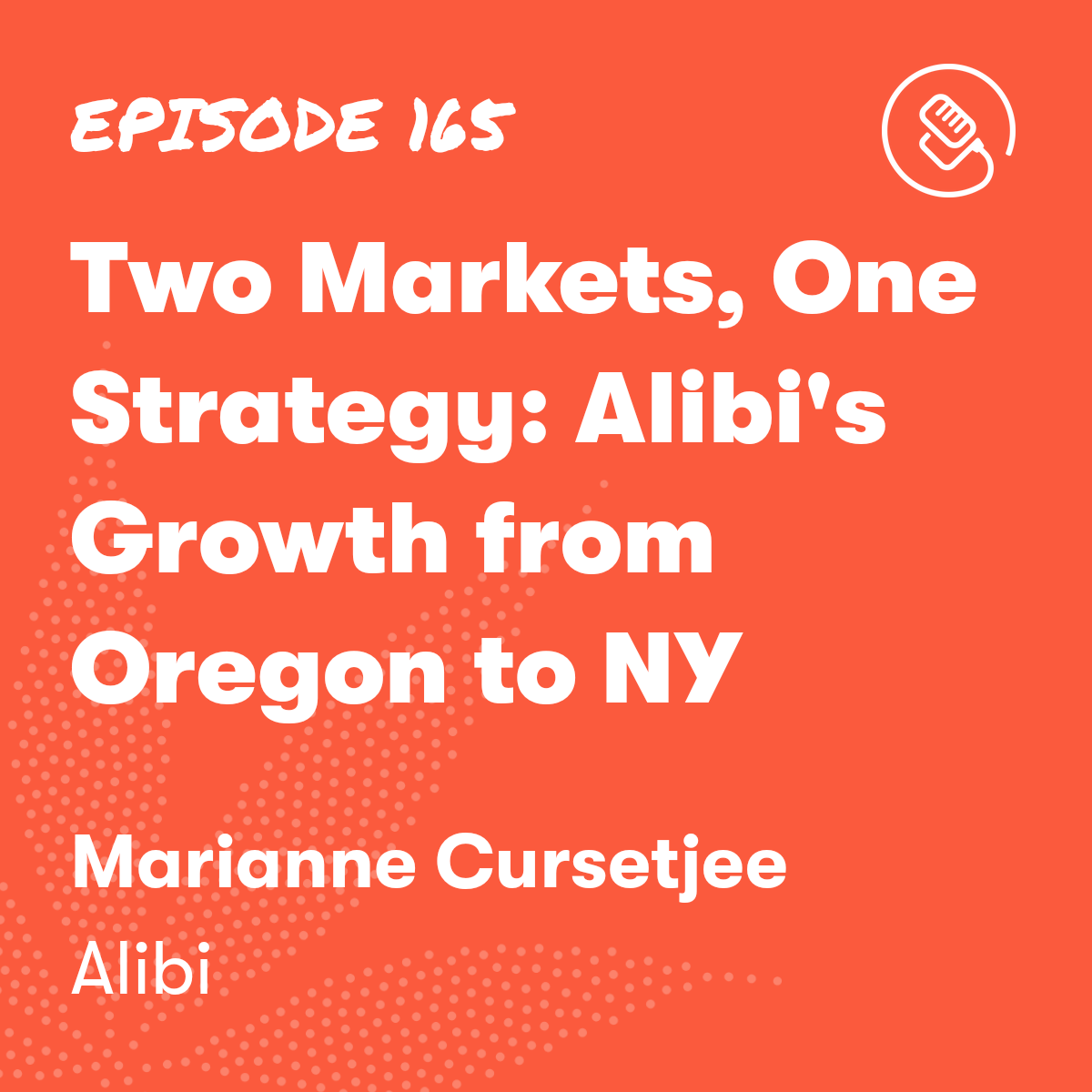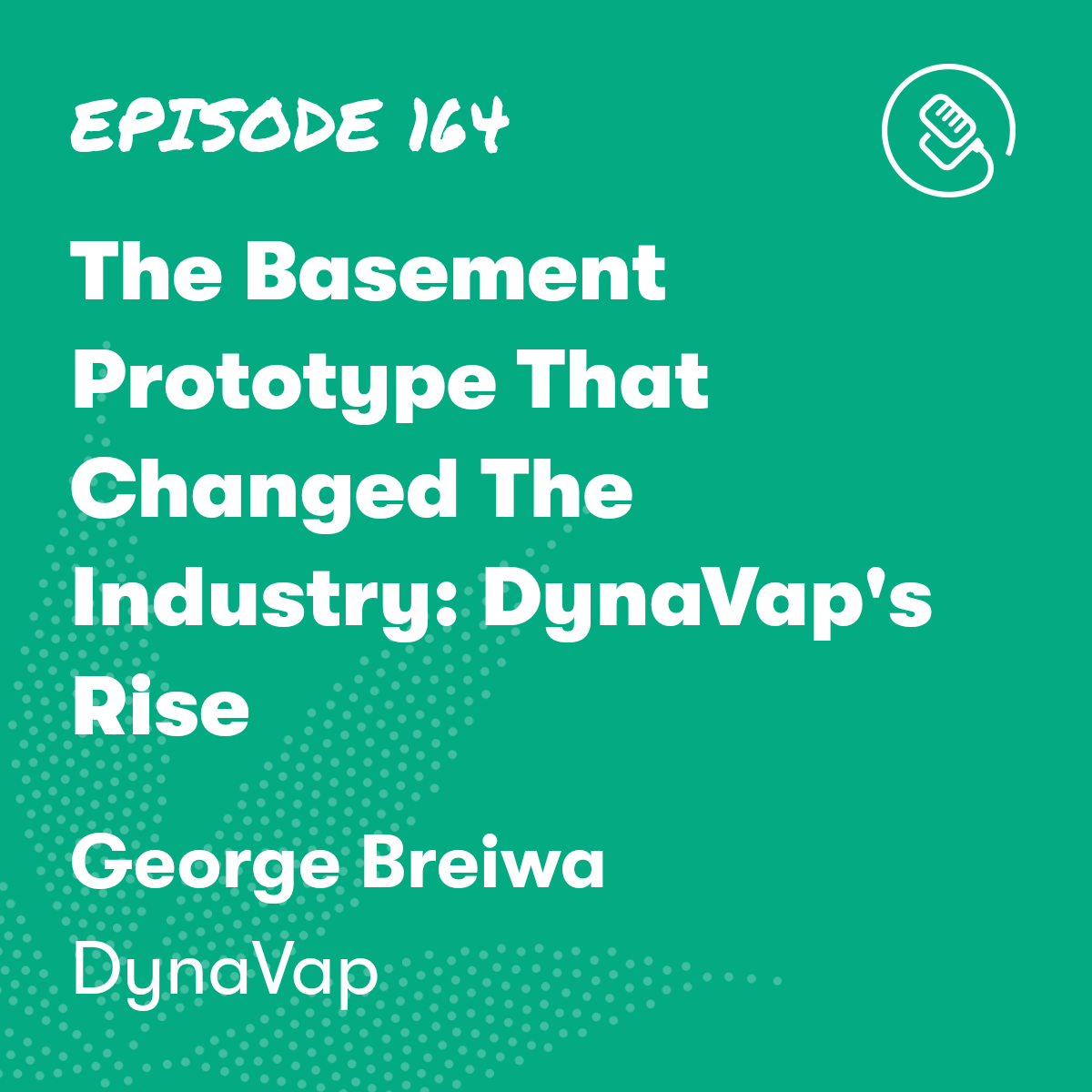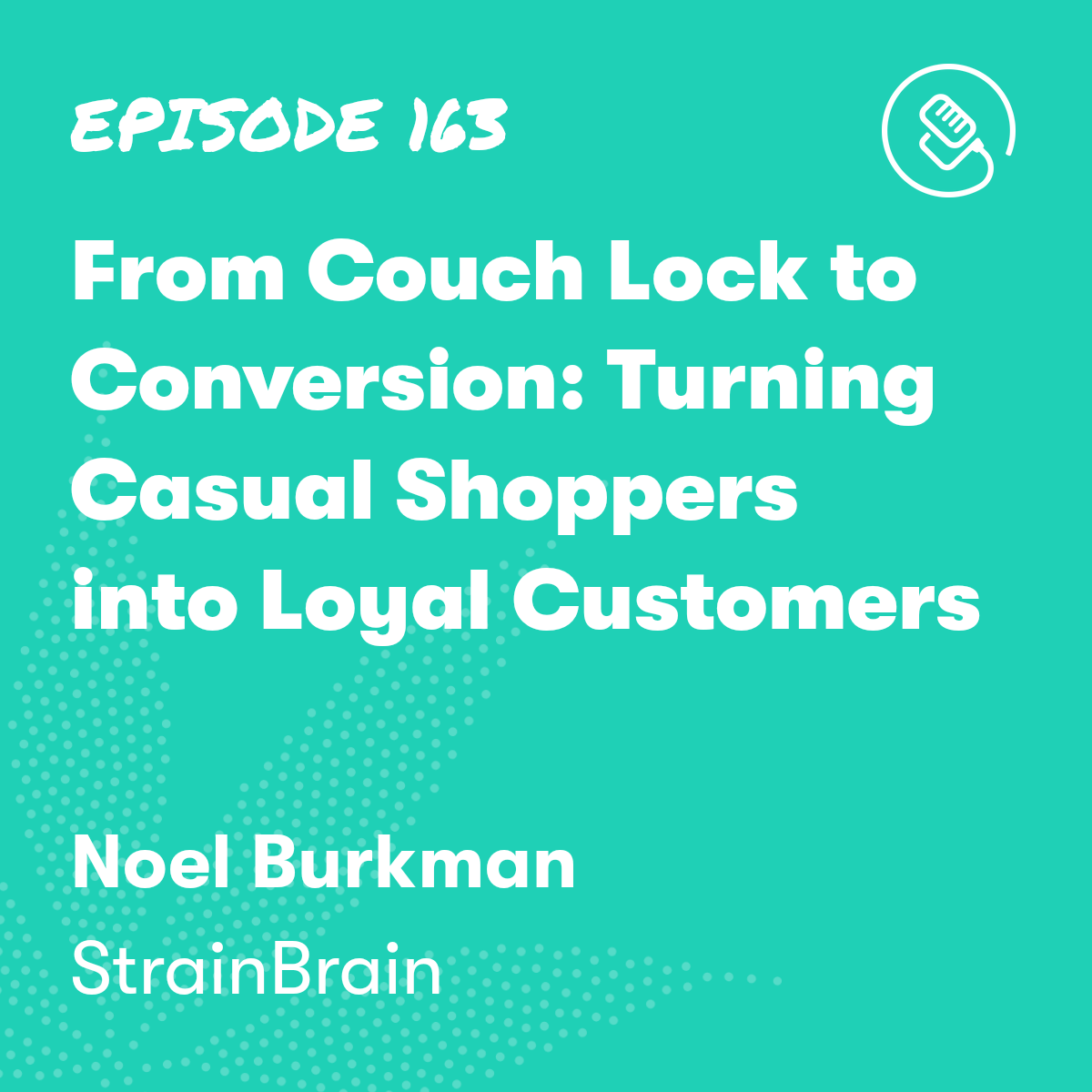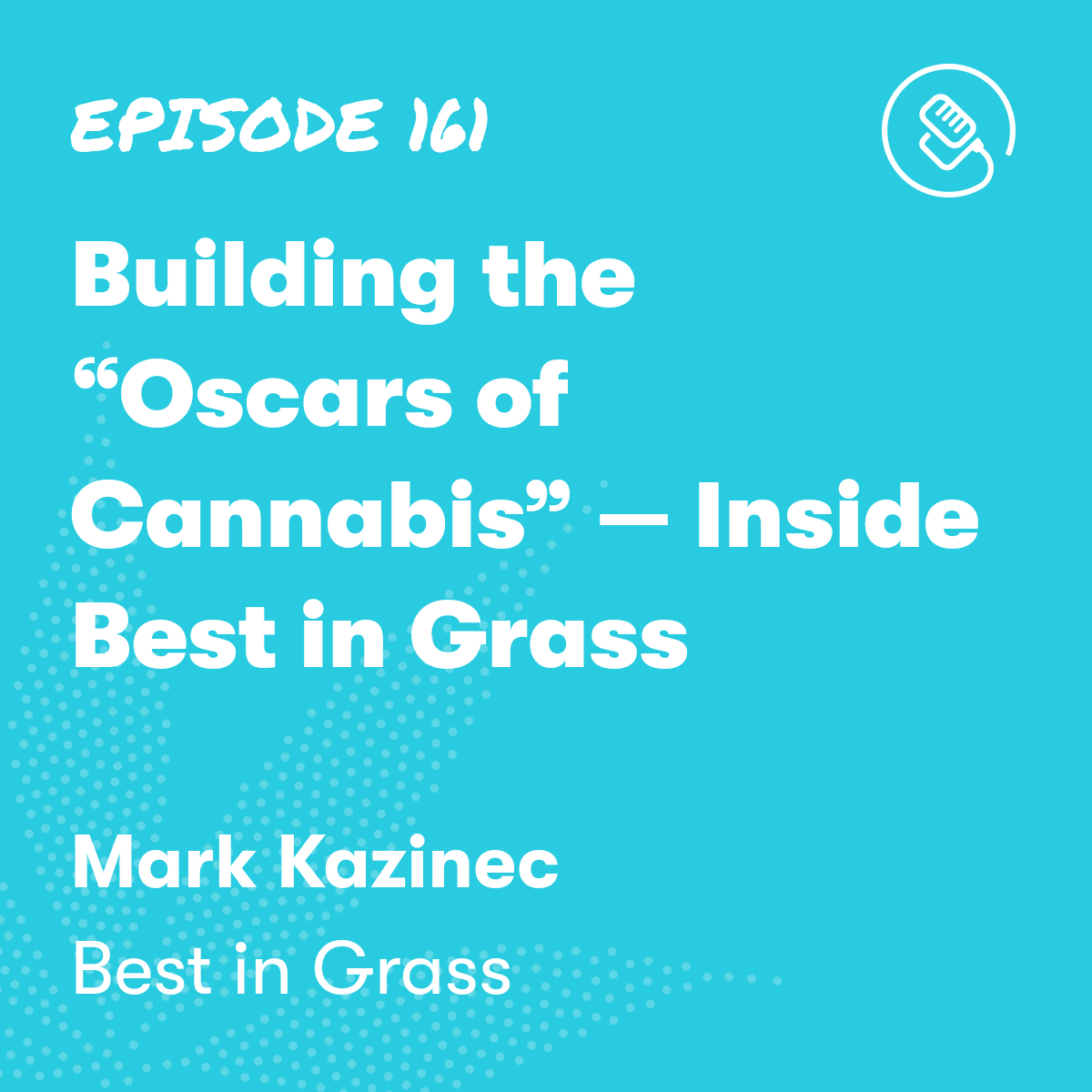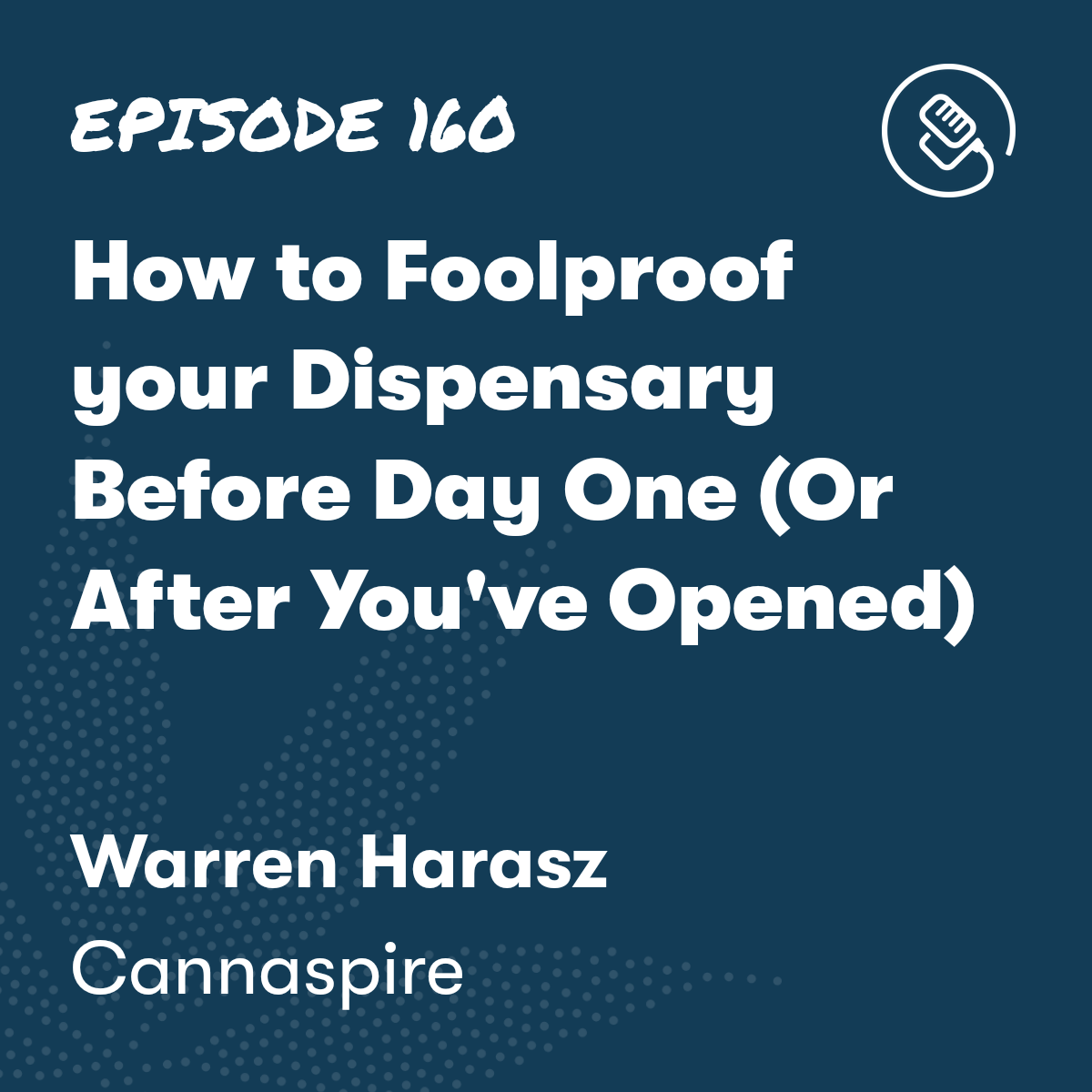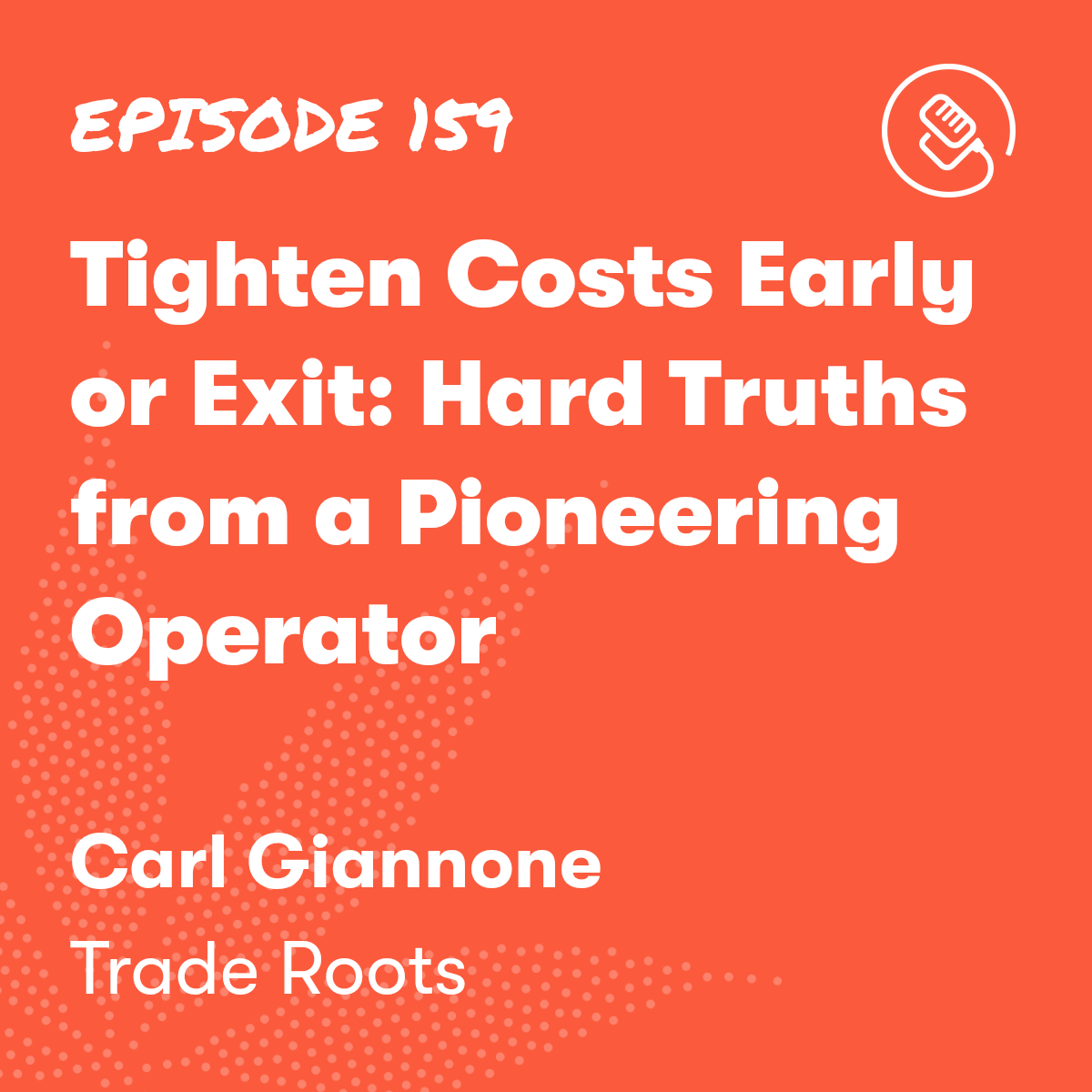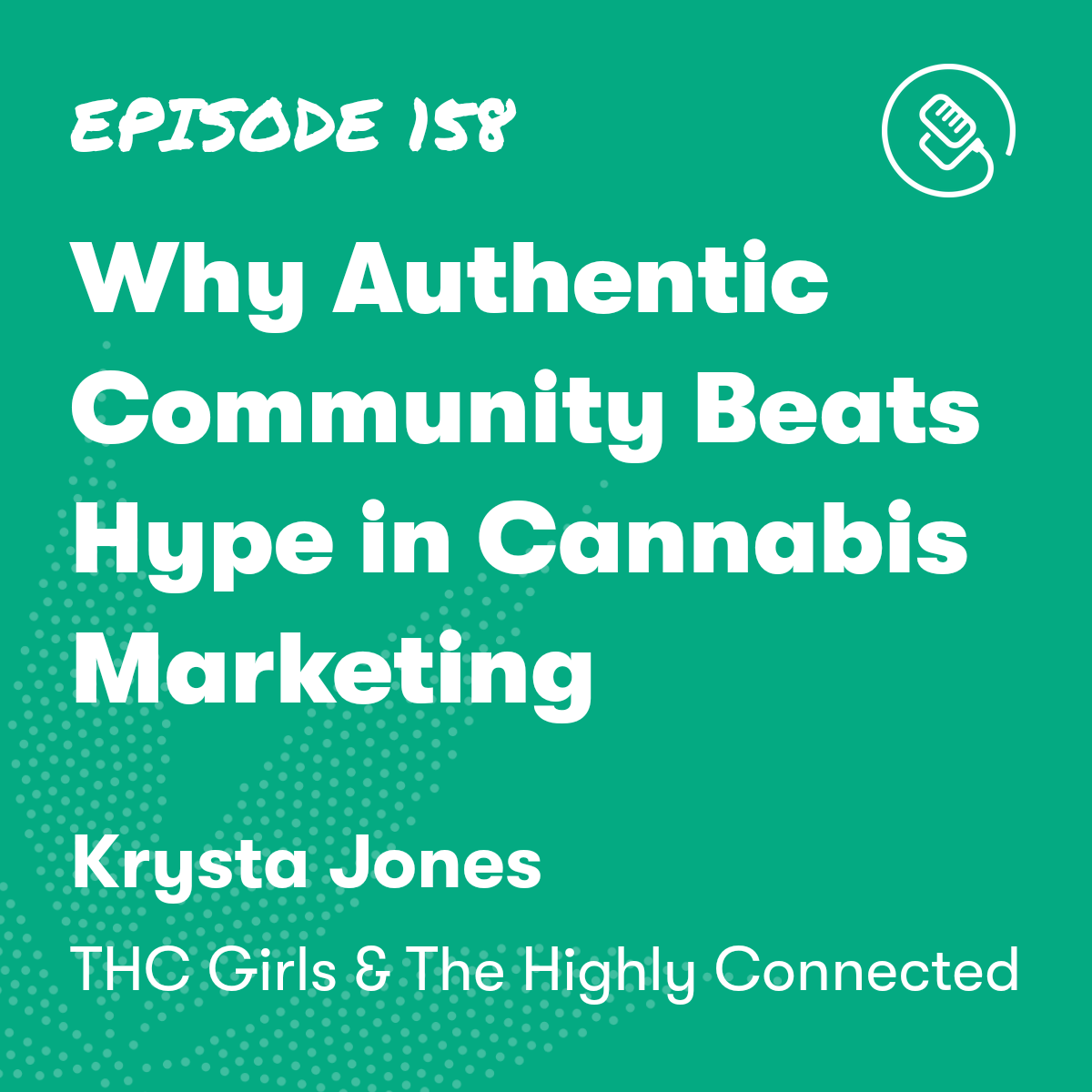

Protecting Your Cannabis Business When the Unexpected Happens
Episode Description

Episode Transcript
Tom Mulhern: Welcome back to the Kaya Cast podcast. I am your host, Tom Mulhern, and today on the show we are talking all things cannabis insurance with Fady Kamel. Fady Kamel is the managing partner at All Risks Insurance out of Erin Mills, Ontario and Fady is working with cannabis businesses to provide insurance coverage needs for their, their business. And you know, there's so many different things that could happen in a cannabis business and really insurance covers you from most of those risks. That's the point of insurance. And so Fady and I dive into what sort of coverages do cannabis retailers need? What do cultivators need?
What are some of the main claims that a lot of these businesses are claiming for their insurance, and we also go into the future of cannabis and the industry and insurance and how that all kind of works together. So I hope you enjoy this conversation with Fady Kamel of all risks insurance.
Tom Mulhern: Fady Kamel began his insurance career in 2009 as well versed in all things insurance. Fady specializes in evaluating insurance risk within the cannabis space, working with large licensed producers, consultants, retailers, extraction companies, and the list goes on. His underwriting knowledge, industry experience, and focus on risk management.
Has helped him become the go-to insurance broker for all things cannabis. Fady launched the first cannabis retail store insurance program in Canada offering exclusive insurance policy savings to retail stores, and has earned the trust of many in the space through his genuine support and care for the success of his client's business.
All Risk Insurance Brokers Limited is a full service insurance brokerage offering a broad array of property, casualty, life, health and investment products and services to the residents of Ontario. They also offer cannabis insurance and Fady that's why you're here today. So welcome to the show. It's so great to have you on the show.
Fady Kamel: Thanks, Tom. I appreciate it. Thanks for having me.
Tom Mulhern: Tell me a bit about your background and how did you end up getting involved in cannabis?
Fady Kamel: I like to tell people I've been studying cannabis for 25 years or so. But in terms of my background, I started an insurance. About 2011, I believe, at at td, just as a customer service kind of rep on the phones. And, you know, eventually worked my way into underwriting, into both personal and commercial underwriting.
So I ended up working with a lot of mid and large size commercial risks which, which really helped me kinda understand all sorts of, you know, different types of businesses. What they need to look out for how they can be successful. And to me, you know, in insurance for, for some is kind of boring.
It's a not the most exciting topic. So for me, just understanding different businesses and, and what they do to protect themselves and you know, that was a really interesting side of, of things for me.
So in 2015, I made that jump. I joined All Risks in Mississauga just as a producer. And again, eventually had kind of the idea of opening up and two and a half years ago. So early 2020 opened up my own branch here in Erin Mills.
I got really lucky, like I opened up the office probably 10 minutes walk from where I grew up. My parents still live there, so, so knowing the area, just being able to open an office kind of in your community. Was, was really exciting for me.
And then how did you land in cannabis? Because there's so many different, you know, I, I've kind of shared, I have a background. In insurance, insurance technology. What brought you into cannabis? Like what kind of attracted you to that industry?
A good friend of mine actually started a cannabis company, a licensed producer. And, you know, he invited me out to their facility. It was a 70,000 square foot facility, and we were literally sitting on like folding chairs on a dirt floor. Like there was nothing there yet. So yeah, he's like, I need insurance.
I'm building a facility. And that's kind of how it started. It was really cool and I was really lucky to be able to see a large company like that from the start before they even had the build out. And it helped me understand all the different types of policies that, you know, you're gonna need, what's coming especially on a large scale.
So it, it made it a little bit easier when, you know, working with other companies who were just starting out. We kind of, already had a little bit of a roadmap. And it also made it easier because it was somebody that I knew and they trusted me to, to go to bat for them and go to work for them. At the time there was no such thing as cannabis insurance.
So everyone was kind of figuring it out together. The clients didn't really know what they needed. So to have somebody who kind of trusted me to, to go to work for them and, and figure those things out. Definitely led you know, to, to a lot of great things.
Tom Mulhern: They're pretty similar industries cuz insurance has been around forever, you know, and cannabis has been around forever. So there are these, these old these old industries that are really changing at a, like, breakneck speed.
Coming into the industry, what's something that's really surprised you about it?
I actually switched from insurance into cannabis and there's so many things that are surprising. So what's, one thing that's kind of stood out is like, oh, I didn't think that was gonna be like that.
Fady Kamel: Early on I was expecting the regulations are set, the kinda rules are set in place. Things would kind of continue that way, you know, not being involved in a brand new industry before I didn't really know what to expect, but I thought things would remain kind of status quo for the first say, year or six months.
But I quickly found out that that things changed really fast. They used to say a week is a month in the cannabis space. And it really felt like that, like every week there was new things coming out and, and things that we all kinda had to be ready for that you couldn't really prepare for.
Like, I remember stories of, you know, our clients getting the excise stamp a couple weeks before they were supposed to have the products out and they had no clue how they were gonna stick them on where they were gonna put them. So, they literally sat there like, you know, I, I have VPs and board members and owners that sat there sticking these things on with their hands.
Because they, they had no choice. They, they didn't have a heads up. They didn't know. Kind of how to prepare for it. So I think for me that was probably one of the biggest surprises. Obviously that, you know, shock went away really quickly. And then you understood that hey, these things are gonna change and you kind of got prepared for them.
But early on, I would say that was probably the biggest surprise for me.
Tom Mulhern: I really like that that phrase like a, a week is like a month or a week is like a year. It can feel like it because things are changing so quickly. And even up here in Canada, you know, we used to have a rule that you had to have the privacy screens on the windows so no one could see the bad products that they're being sold.
But then they realize that's a security risk. That's a huge risk, not being able to see in or out. They reversed that and changed it, and now, you know, it's, it's constantly changing, constantly in flux.
Fady Kamel: For sure. Yeah. Another good example of that is when retail stores first opened, the OCS had a requirement to do business with them to have 10 million in general liability. And at the time, you know, some of the licensed producers had 10 or 15 million in general liability. So for, to ask a store to carry 10 million.
At the end of the day, it's just a store, right? Like the product inside isn't gonna impact the type of lawsuit that could happen. So yeah, they, they originally asked for 10 million eventually, you know, a little bit of pushback on, on both sides. From the insurance kinda world and from the retailers collaboratively.
And they ended up reducing it to 5 million, I think it was about a year or two in maybe about a year later. And that helped it, it gave obviously retailers a little bit of relief in terms of pricing. But more importantly it was unnecessary. And, you know, you gotta give them kudos to at least recognizing that and making the change.
Tom Mulhern: As a brokerage, what type of cannabis insurance do you offer? And really what type of insurance does a cannabis retailer need? Like, I know you guys probably offer it for everything you can imagine, but what are, what are some of your main, your main cannabis o insurance offerings?
Fady Kamel: When you look at LPs like licensed producers, you know, they need a whole bunch of different policies. Some of the big ones, their product recall because they are manufacturing the product the directors and officers insurance for the board members.
That one was especially important in the early days when a lot of companies were raising capital to make sure that they're. So I would say those are probably the two biggest ones. And then just like any other business, any other manufacturing facility, you know, you need to protect your equipment, your property, you need your liability of course, if you're being sued.
I always like to look at it in kind of two buckets. So one is your physical property, right? Anything that can be damaged. Fire water. Can damage any of your physical assets. The other bucket is your liability. So in terms of lawsuits, you can be sued, you know, someone slips and falls. Someone tries your product and they're injured.
So for the most part, most businesses need both, right? A little bit of liability, a little bit of physical property. When you look at a retail store, again, it's, it's very similar to any other store, right? Because the, the liability for the actual product doesn't lie with the retailer that lies on the manufacturer, just like any other business.
So, , you know, you're concerned that a store is, those slip and falls is, you know, the big one. The water damage you know, theft, break and enters those things are are pretty standard no matter what type of retail store you have, it could happen. I think early on people were a little more worried because it's cannabis something new.
It might be more tempting for people to break in. So I think those things, you know, there's a lot of similar with, with any other type of business.
And, you know, protecting yourself from it is, is very similar on the retail front.
The big one I I, I always like to tell retailers is the break in enters and the thefts, you're never gonna fully stop them. You know, people are gonna smash the window if they want to at night. There's nothing you could do about it.
You're way better off spending money into. that are deterrents. So, you know, bars on the windows, yes, they're ugly, but they can save you a lot of headaches. So just making it harder for somebody to actually get into the store. You know, smash the window is one thing. Get in and cause damage is something else.
Of the few, I, I knock on wood of the few claims that we've seen from retailers, A lot of the damage isn't from stolen product, it's from damage display cases or TVs or because the product is pretty secured and stored away. So, you know, anything you can do to, to kind of prevent further damage, make it difficult for them by the time either security or or police show up will, will really help you in the long run.
Tom Mulhern: What are some of those major insurance claims that your cannabis clients have? It's not like someone driving their car through the front door and like taking product and getting, getting out of there. What's the usual claim?
Fady Kamel: Yeah, I think the, the most common one for sure is water damage. Especially in condos, older buildings, you get leaks from up above. That's the one that we see kind of the most frequently. Again, knock on wood, we've been we've been very lucky not to see too many.
From an LP perspective in the manufacturing facility, if, if a claim does happen there, a physical property claim, it's usually big like a fire electrical. So you really wanna do everything you can in terms of safety standards. We saw earlier on a lot of lights kind of exploding and those lights and the heat and energy that kind of was released would cause fires.
So I know there was a couple big, big losses there. at the end of the day. Yeah. I, I think that's one of the reasons, and one of the things that a broker can really do to help you is, you know, look at those practices and see what you're doing. I love to visit facilities. That's probably one of the funner parts of my job is going in there and, and seeing little things.
and.
Add a little bit of value in terms of what you can do to, to make sure you're protected more than just, Hey, here's your insurance policy and here's your deductible. Right?
Tom Mulhern: For cannabis retailers, what are some, are there practical ways that they can bring down their premiums? You know, those, those premiums that can, that can bite into so much if something happens.
Is, is there things that people can do to bring down those premium?
Fady Kamel: Yeah, definitely. You always wanna look at kind of what I call your risk tolerance and your risk level. So, you know, we have some clients who were one of the first 25 stores to open. You know, they've done very well for themselves and they choose not to have any business interruption coverage, zero.
I do not recommend that. However, if you've done well for yourself and you're accepting that risk and you're saying, you know what, if we're shut down for two or three months I'll be fine. I don't need anything from the insurance company. I'll figure it out on my own. Yeah, you may as well take the savings again.
You know, business interruption is probably the most costly single coverage on the policy, so there is definitely an advantage to it. But you definitely have to know your, your risk level. Like I've spoken to some who are like, yep, I don't want it, I don't need it. And I'm like, hold on a second. Yes, you're gonna save a thousand bucks, but you know, if you were shut down for two months will you be okay? Will you be like, fine with that? And the response was, no. In that case, it, it's not worth it to save that thousand bucks.
So there's definitely different ways. You know, another big one is your stock and inventory levels. The savings are not huge, but I've seen cases where, You know, they start out in their first year, a ton of stock, a ton of inventory, and they start to realize that you don't need that much.
Or there's certain things that they stop carrying, and now they're carrying half of that for the entire year. So just really analyzing that and seeing you know, how much protection do you want? How much do you want to take on yourself? Things like deductibles always help. Again, it's really understanding what you are willing to, to kind of risk.
Tom Mulhern: In the commercial insurance land, how does the cost of cannabis insurance, stack up against, you know, say like a, a mechanic shop or a bakery or something like that. A a a regular commercial business. Is it more expensive to get cannabis insurance, or is it, you know, this just, this is how much it costs to cover your business?
Fady Kamel: So it's definitely more expensive. It's it's come down a lot since, since things started. But it's definitely a, a lot more costly than, than most businesses, so they still has a little bit of that. Cannabis tax, we used to call it . You know, they still believe that these companies are making millions of dollars.
So yeah, at the end of the day, a lot of similarities in terms of underwriting. But when we look at pricing, you know, because there aren't as many players,
that really limits your options. And when you have limited options, you, you're not gonna have a very competitive market. So we're starting to see that turnaround today.
there's really only two companies I would say that do it and do it well. There's a couple others who say they do it, but once you see their pricing and their coverages, it, it really doesn't make sense.
When you only have two options, you gotta do something to, to stay competitive, right.
Tom Mulhern: Are there more options in the states? Like, I mean, you, you work primarily in Ontario, Canada. What about the the US market? Is it difficult to find insurers down there that'll cover cannabis retail?
Fady Kamel: So the US is very interesting. You know, it's legal, but it's not.
So it, it makes it very interesting, you know, insurers there will ensure within their state without any issues. And then once you start getting out of state, it's a little bit trickier, a little bit tougher, but definitely, you know, in general, the US usually has more options than us. A little more competition than us.
So yeah, there's, there's a lot more players out there. I think it's just trickier because of the state and, and the rules. But right now, especially in the US, I feel like. Where they are, where we were probably, you know, two or three years leading up to legalization. So there's a lot of action just in terms of companies getting ready and movement and, and raising capital.
And so it's definitely a good time to, to be in cannabis right now in the us.
Tom Mulhern: I always tell people that, just like any other business, if, if you're protecting yourself and if you have the right checks in place, then the risk is the risk. And you know, especially for cannabis, like when you look at a cannabis facility compared to any other facility or any other type of business, there's way more eyes on it and way more reporting requirements and, you know, regulations. And so for that reason, a lot of the risk is actually already taken care of because they have to meet all these security standards and and clearances, et cetera. So, from an insurance perspective, that's probably a better risk than the metal manufacturer who nobody is looking at or nobody has looked at in 20 years.
Fady Kamel: I think once they start realizing, you know, insurance is slow, it, it's, it's based on obviously previous data and history. When there isn't any, it's tough for them to predict and price things.
And I think once they realize that they're, they're gonna be all in, it's just a matter of time.
Tom Mulhern: There are few retail operations that are so controlled and their security,
So it seems like it would be a safer bet to go, go for cannabis. But that's not the case. Right? Just now, like maybe the future.
Fady Kamel: I think it's more of them just saying, oh, cannabis. No, thank you. Right? Like they, they see it as, You know, the low hanging lights and the faulty electrical, and they still have that kind of vision in their head of it. And I think once they realize that, you know, these are some of the most secured and safe facilities of any industry.
Tom Mulhern: What do you think is the biggest challenge facing cannabis retailers today? We could break it apart between US and Canada, but what's that huge brick wall that is hard to break through for cannabis right now?
Fady Kamel: You know, in Ontario there, there probably are too many stores, I think too close together. They're really concentrated in terms of the amount of stores.
I think Ontario can, can handle a lot of stores. Like today, I think we're just over 1500. You know, I believe over 1,012 hundred easily Ontario can handle. It's just a matter of, of where they are. Right. When there's 10 on the same street Yeah. Not everyone's gonna make it. So in Ontario for sure, that's one of the challenges.
From a retailer perspective, I think your branding today is huge.
You know, early on location of course was really big today when there's one on every corner and you know, the pricing is all really similar. Why am I gonna go here over there? So, I think that's really important is building that brand and, you know, just understanding your clients.
There's some stores I know that don't carry any drinks or, you know, they, they might carry twice as much hash as everybody else, a certain product. So, just really understanding what your customers want and what they're looking for. I, I think that's huge.
You know, in the US I can't speak on it too much, but obviously the challenges there I think are, are more understanding of what you can and can't do and where you can and can't do it.
You know, once the US opens up federally, I think it's gonna change everything, right? Like for us in Canada I think worldwide, you know, so I think all eyes are on the US right now.
Tom Mulhern: Looking at the future of cannabis, what are you gonna see as the future? You know, obviously legalization, but like of cannabis and insurance, like both of them are growing so quickly.
what's kind of your, your long term view of, of what's happening in the industry.
Fady Kamel: Cannabis is gonna be here forever. It's gonna be here for a very long time. And, you know, we're a couple years into legalization. We're still in the early stages of an industry that's you know, a, a very big industry that's gonna be worldwide and it's just again, I think all eyes are on the US especially here in Canada.
Once the US kinda says, all right, we're good. I think a lot of the world is gonna start paying attention.
From an insurance perspective, again, I think it's a matter of time. Once some of these big companies say, wow, these retailers have had, you know, great loss ratios over the last couple years, or these LPs can actually be profitable for us.
I believe there'll be a lot more options in the future. Again, once the stigma also starts to slowly go away, right? I always tell people like, alcohol, they compare it to alcohol. And it's like, well, I've never seen anyone violent off cannabis, right? Like, I've never seen anyone commit a violent crime off cannabis.
So, you know, a lot safer. Again, just like anything if, if you. Use it correctly, it could be good for you. Or if you abuse it, it, it could be bad. So, I think once, you know, a lot of the world really opens up to it a little bit more. Seeing the kinda, you know, benefits. It could have a ton of medical, obviously benefits.
Once the world really starts to understand that this is something that's gonna be here a long time, and it's, it's got a lot of benefits, whether it's medically, physically you know, it, it can really help a lot of people. Not to mention obviously the recreational part of it, right? Like, just like a glass of wine is a great thing to have.
You know, if you control it correctly, it can really help kind of make things, you know, a lot more enjoyable.
Tom Mulhern: Well, yeah, you can see so many. Health benefits from it. Like, like I was even listening to a podcast with Dan Akroyd and Jim Belushi. They were kind of talking about, you know, Jim Belushi has his, his cannabis company and, and Dan Akroyd has Crystal Skull vodka, like that's his company. And he was saying like, at the end of the day, vodka alcohol is a poison, like you're poisoning your body.
Where cannabis is, this, you know, it interacts, the cannabinoids interact with our bodies and it can have so many benefits and I think that stigma is still there.
And so I think we have a long way to go before we get to that point where people. The benefits of it.
If you compare the two, right, there's already medical benefits. There's already prescription, like prescribed cannabis. But it's that stigma of it being illegal and I'm sure it was similar for alcohol right around prohibition when it was illegal. So I think it's just a, just a matter of time.
You work primarily in Ontario, but what if there's someone that's listening there in bc? Can they, can they still reach out to you or do you work only in. That specific area.
Fady Kamel: So we're licensed in Ontario and Alberta but we definitely have partners in BC. You know, BC's a a very busy and big province for cannabis. They have a, a huge legacy market out there that's really just now starting to transition into the legal space. And that's gonna take time. But yeah, definitely anywhere across the country, Canada, US, you know, we get calls from the US sometimes.
We have partners and brokers down in the US and, you know, if we can't help you, there's always a way that, that we can. To, to help you. And I think that's one of, you know, the things that I pride myself on. It's again, not just, here's your insurance policy, it's, Hey, do you need something else?
Oh yeah, we know somebody here or there. That, that can really help.
Tom Mulhern: So how do people reach out to you? Like do they check out your website? What's the best way to kind of connect with you and what you guys are doing there at All Risks?
Fady Kamel: We're on all socials. Our website is retailcannabisinsurance.com so it's a little bit long but , you can catch me on on Instagram, Fady Kamel insurance. You know, my email f.kamel@all-risks.Com and yeah. Happy to chat and and help anyone any way we can.
Tom Mulhern: Well, this has been good to kind of put back on my insurance hat and you know, I'm, it's fascinating when you talked about the, just the fact of like the controls that are in place in a retail store that really insurance brokers or insurance companies need to realize this is a huge booming industry and it's time to get on board.
Fady Kamel: Yeah, Ontario sold in the first quarter, Ontario alone, over 400 million in cannabis. So, you know, the demand is there. It's just a matter of time, right.
Tom Mulhern: That's awesome. Well, hey, I appreciate you sharing some of your insights and some of your thoughts on cannabis insurance and the future of cannabis. You've been in it for 25 years, so you should have your PhD in cannabis at this point. Thanks for being on this show, Fady.
I really appreciate it.
Fady Kamel: no problem at all, Tom. Thanks for having me.
Tom Mulhern: I want to thank Fady for taking the time to talk to me and to our listeners and share his insights as a cannabis, insurance professional who's had tons of years of experience as a cannabis consumer. Like he said, the entire world has its eyes fixed right on the US as kind of this litmus test of how legal cannabis work internationally. And so I, I, I have this conversation with a lot of people and I really appreciated Fady's insights into what that would look like and what the risks would be. And at the end of the day, This industry is so secure, it's so safe because of all of those guidelines that are in place to even run your business.
Again, I want to thank you for listening to this podcast for subscribing to the Kaya Cast podcast for sharing it with your friends and for learning from these amazing guests that we have on here every single week on the Kaya Cast Podcast.




